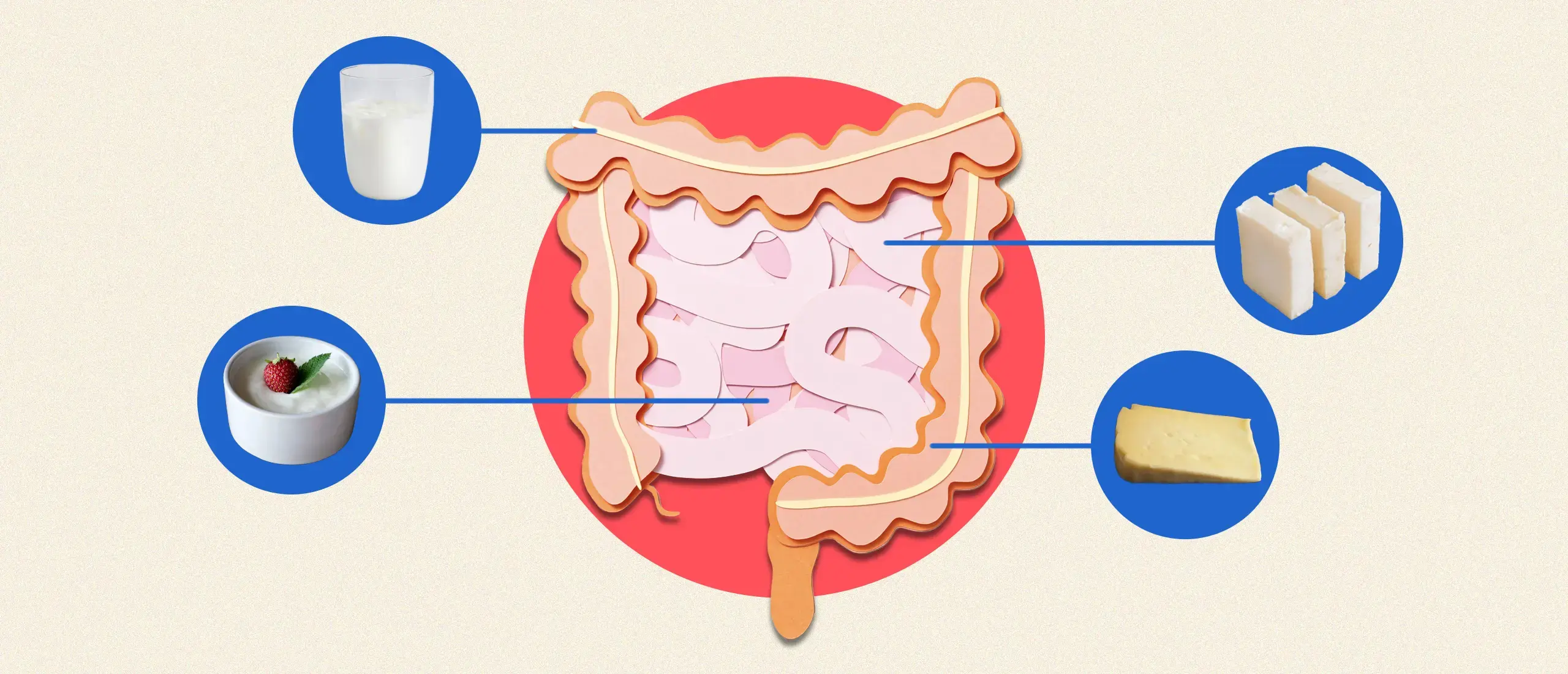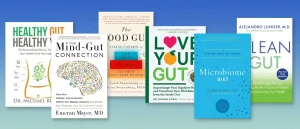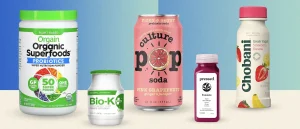Does Dairy Cause Inflammation? Your Final, Expert-Backed Answer
- By Rebekah Harding
- Fact-checked by Mike Fazioli
- November 22, 2023
30-Second Takeaway
- Research suggests that dairy may have a neutral or positive effect on reducing inflammation in the gut.
- Sixty-eight percent of people may have lactose malabsorption—a condition that gives way to symptoms similar to gut inflammation.
- Most gut health experts don’t suggest that you completely eliminate dairy from your diet, unless you have a milk allergy or lactose intolerance.
C
hronic, low-grade inflammation can reduce your healthspan and lifespan by upping your risk of dementia, cancer, and heart disease. And while toxins, obesity, and poor sleep are known agents of inflammation, certain foods like refined sugars and saturated fats have also been linked with inflammation.
Recently, rumors have swirled around dairy. But does dairy cause inflammation, or is this just another social media myth?
There is a link, but it’s indirect. “In some people (like those with milk sensitivities), dairy may cause the inner lining of the gut to become ‘leaky,’” says family medicine physician Danielle Kelvas, M.D. She notes that leaky gut can “lead to belly pain, bloating, and low levels of gut inflammation.”
Does Dairy Cause Inflammation?
Research suggests that dairy doesn’t directly cause chronic gut inflammation.
“Milk isn’t known to increase levels of blood inflammatory markers,” says Kelvas. Inflammatory markers typically show up when someone is dealing with chronic or excessive inflammation.
In fact, a 2017 clinical review of 52 studies suggests that dairy, particularly fermented dairy, is more likely neutral or even slightly beneficial in controlling chronic inflammation (1).
A more recent study in the Journal of Agricultural and Food Chemistry suggests that the polyphenols (a longevity-boosting compound found in plants) in coffee have an anti-inflammatory effect when paired with the amino acids in dairy (2).
That means your creamer, milk, or half and half won’t throw off your immune cells—it may actually benefit them.
About the Experts:
Dr. Danielle Kelvas, M.D., has over 15 years of experience as a family medicine physician, with a specialization in mental health, psychedelics, and gut health (microbiome). She is also the medical advisor for R’s KOSO, a postbiotic drink brand.
Yelena Wheeler, MPH, RDN is a registered dietitian nutritionist and health writer for National Coalition on Health Care (NCHC).
What About Dairy Sensitivities?
If research suggests dairy isn’t inherently inflammatory, why does it have such a bad rap?
Many people—up to 68 percent of the world’s population—may have lactose malabsorption—a condition where the small bowel can’t absorb all the lactose you consume. Lactose is a sugar found in milk and other dairy products (3).
Lactose malabsorption may cause acute gut inflammation (this is different from chronic gut inflammation from conditions like Crohn’s disease, ulcerative colitis, and IBS) in some people. If your body can’t absorb lactose, you might experience gut problems like bloating, diarrhea, and gas.
There isn’t a strong link between untreated lactose malabsorption and chronic inflammatory gut conditions (4). However, undigested and fermented lactose in your colon may cause discomfort and irritation, which can lead to inflammation in people with particularly sensitive digestive systems. (If you’re lactose intolerant, you can take oral lactase supplements like Lactaid to help your body process dairy products.)
A small population (around 2 percent of adults) has a true milk allergy; a life-threatening immune condition in which your body can’t recognize milk proteins. Dairy allergies can cause hives, difficulty breathing, and even death (5).
Should I Go Dairy-Free?
“I would never suggest someone avoid a certain food unless they were allergic or intolerant to it,” says registered dietician nutritionist Yelena Wheeler, R.D.N. Plus, dairy is many people’s best daily source of calcium, phosphorus, vitamin D, vitamin B12, potassium and zinc, she notes. And research shows that eating three cups of dairy per day can promote bone health (6).
That said there are a couple best practices for eating dairy to optimize your gut health, according to Wheeler.
Opt for low-fat milk
“Consume low-fat or fat-free dairy,” Wheeler says. Full-fat milk and other high-fat dairy products contain saturated fat, which is linked to a higher risk of inflammation (7). This is especially important for people with cardiovascular disease.
Eat fermented dairy products
Fermented dairy products like kefir, cultured buttermilk, and yogurt contain probiotics like Lactobacillus, Streptococcus, Lactococcus, and Bifidobacterium (8). Research shows that certain strains of probiotics, including Lactobacillus and Bifidobacterium, have anti-inflammatory effects. These probiotics can support immune response and maintain a balanced microbial environment in the digestive tract, which may reduce gut inflammation (9).
Each probiotic strain may support gut health in different ways:
- Lactobacillus: produces short-chain fatty acids when dairy ferments in your gut, which are anti-inflammatory (10).
- Streptococcus: may boost immune function (11).
- Lactococcus: converts lactose into lactic acid, which makes dairy products more digestible for people with lactose intolerance (12).
- Bifidobacterium: produces SCFAs, which helps overall gut health (13).
Some people with lactose intolerance can even tolerate fermented dairy products better than regular dairy due to the fermentation process, which partially breaks down lactose (14).
References
1. Bordoni, et al (2017). Dairy products and inflammation: A review of the clinical evidence.
2. Liu, et al (2023). Phenolic Acid–Amino Acid Adducts Exert Distinct Immunomodulatory Effects in Macrophages Compared to Parent Phenolic Acids.
3. NIH. Definition & Facts for Lactose Intolerance.
4. Usai-Satta, et al (2022). Lactose Malabsorption and Presumed Related Disorders: A Review of Current Evidence.
5. ScienceDirect. Milk Allergy.
6. USDA. Dairy.
7. Berg, et al (2020). Saturated Fatty Acid Intake Is Associated With Increased Inflammation, Conversion of Kynurenine to Tryptophan, and Delta-9 Desaturase Activity in Healthy Humans.
8. Kaur, et al (2022). Dairy-Based Probiotic-Fermented Functional Foods: An Update on Their Health-Promoting Properties.
9. Pei, et al (2018). Premeal Low-Fat Yogurt Consumption Reduces Postprandial Inflammation and Markers of Endotoxin Exposure in Healthy Premenopausal Women in a Randomized Controlled Trial.
10. Kopec, et al (2020). The Effect of Probiotics on the Production of Short-Chain Fatty Acids by Human Intestinal Microbiome.
11. Dargahi, et al (2018). Immunomodulatory effects of Streptococcus thermophilus on U937 monocyte cell cultures.
12. ScienceDirect. Lactococcus Lactis.
13. Usta-Gorgon, et al (2020). Short-chain fatty acids production by Bifidobacterium species in the presence of salep.
14. NIH. Living with lactose intolerance.












